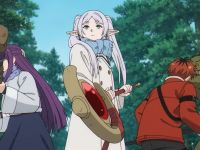AUC enhances physics education in Egypt

The Department of Physics at the American University in Cairo has launched the Spinatory, a spinning laboratory located at the School of Sciences and Engineering that functions as a learning tool for undergraduate physics students and for the public. "The Spinatory is a unique physics facility at AUC and in Egypt that will allow science and engineering students to experience firsthand scientific phenomena that cannot be seen in a regular lab," said Ehab Abdel-Rahman, professor and chair of the Department of Physics."Helping to enhance and promote physics education, the laboratory is a cool and fun outreach tool aimed at everyone – children, school students, undergraduates and non-science students."
The Spinatory demonstrates, for example, a famous rule in physics known as Corilios force. Two students stand in the circular room as it spins counter-clockwise, and one will toss a ball to the other. Instead of the ball moving in a straight direction, it will veer to the left. Applied to real life, a missile that is traveling a long distance cannot be directed precisely at its target. Corilios force needs to be taken into account due to the Earth's rotation. The new machine also includes a camera, which will take videos of experiments conducted in the Spinatory so students can watch on a projected screen.
In addition to the Spinatory, AUC professors, as well as undergraduate students and graduate students studying physics, have been regularly visiting primary schools to share the wonders of physics in a way that is both entertaining and educational. Students participate in hands-on games and activities, which trigger their curiosity in why things work the way they do. AUC students and faculty members then explain the technical concepts behind the activities in a way that younger students can understand.
"If we want to become a knowledge-based society, we have to embed in our children a love of science at an early age," said Abdel-Rahman, who is spearheading the hands-on scientific learning initiative. "A science-based economy is one of the solutions to Egypt's economic problems. For science to be successful in the future, we can't start with ourselves; we must start with the younger generation."
In one demonstration used to teach the concept of pressure, students are asked to lie on a large bed of nails, feeling no pain. This sensory experience helps to explain how pressure equals force divided by area. As the area of the nails increases, the pressure experienced by the student lying on the bed of nails decreases. "While they might not fully understand the details now, we are raising their curiosity about physics, which will cause them to return to science and remain interested in the future," explained Abdel-Rahman.
Most importantly, students do most of the thinking for themselves. In a board game activity, students spin a wheel that has different energy saving and wasting options. When students land on an energy-saving option, they can move two spaces forward in the game. If they land on an energy-wasting option, they must move back one space. One of the options on the board game wheel is carpooling. Most primary school students have not heard of carpooling, so the game forces them to discuss as a group what it is and whether or not it saves energy. The activity ultimately introduces them to sustainability concepts they might not have known otherwise.
To further develop an interest in science among children, the School of Sciences and Engineering is planning to host a Junior Science Camp this summer in partnership with the School of Continuing Education. The camp will include a number of science and engineering activities, and will focus on the importance of science and science education for the future of Egypt.
Background Information
American University of Cairo
Founded in 1919, AUC is a leading English-language, American-accredited institution of higher education and center of intellectual, social and cultural life of the Arab world. Its community of students, parents, faculty and staff, trustees, alumni and other generous sponsors represent more than 60 countries. The University stands as a crossroads for the world’s cultures and a vibrant forum for reasoned argument, spirited debate and understanding across the diversity of languages, facilities and human experiences.






